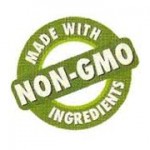 Nearly 1 million signatures were collected in support of the ballot initiative know as the California Right to Know Campaign. The bill which is slated to go on the November 6 ballot, would require foods made with genetically modified ingredients (known as GMO) to be labeled. The bill states that its purpose is to allow Californians to “choose for themselves whether to purchase and eat such foods [GMO food].”
Nearly 1 million signatures were collected in support of the ballot initiative know as the California Right to Know Campaign. The bill which is slated to go on the November 6 ballot, would require foods made with genetically modified ingredients (known as GMO) to be labeled. The bill states that its purpose is to allow Californians to “choose for themselves whether to purchase and eat such foods [GMO food].”
What is GMO, also called genetically engineered food? According to CaRightToKnow.org, “genetically engineered (GE) food is a plant or meat product that has had its DNA artificially altered by genes from other plants, animals, viruses, or bacteria, in order to produce foreign compounds in that food.” These alterations are not found in nature, and allow for the production of plants that are resistant to pesticides, drought, disease, and pests. The majority of corn and soy crops grown in the U.S. are genetically engineered and wind up in processed foods such as cereals, baby food, bread, and chips.
A recent Mellman Group poll found that 9 out of 10 Americans supported labeling of genetically engineered food. In which case, it should not be surprising that almost double the necessary signatures were collected to get the bill on the November ballot.
If enacted, foods containing more than 0.5% in total weight of GMO ingredients must be labeled clearly on the front or back of the package using the words, “Partially produced with genetic engineering” or “May be partially produced with genetically engineered ingredients.” Also included in the bill is a ban on labeling food “natural” since the U.S. Food and Drug Administration has no definition of this term.
Exceptions to the legislation include dairy and meat products where the animal may have consumed genetically modified feed and, until July 2019, foods that contain an ingredient that accounts for less than 0.5% of the foods total weight (the food may contain up to ten of these ingredients).
Opponents of the bill, which include food seed giant Monsanto, claim cost factors in the new packaging, will contribute to higher food prices for consumers. However, a study in the EU (where they already require GMO labeling) found that the labeling requirement did not significantly increase food costs (a mere 0.17 % increase in Europe), according to Prof. Chris Viljoen from the GMO Testing Laboratory.
The opposition also claims that consumers will perceive GMO food as unsafe if the label is required. They may be correct about that. While studies worldwide have yet to conclusively link GMO foods to greater health risks, they do suggest that genetically engineered foods can create toxicants that increase allergens in food and contribute to other health problems. By labeling GMO foods, experts can further study if these foods are contributing to human health issues.
Additionally, genetically engineered crops have already increased herbicide use in the U.S., not only creating more air and water pollution, but leading to herbicide resistant weeds that require heavier and increasing dangerous types of herbicide use.
While the bill makes no attempt to reduce or restrict GMO use, it is a step forward for consumer transparency. The nation will keep an eye on California this fall to see if the state will join the more than 40 countries, including all of Europe, Japan and China, in labeling genetically engineered food.






